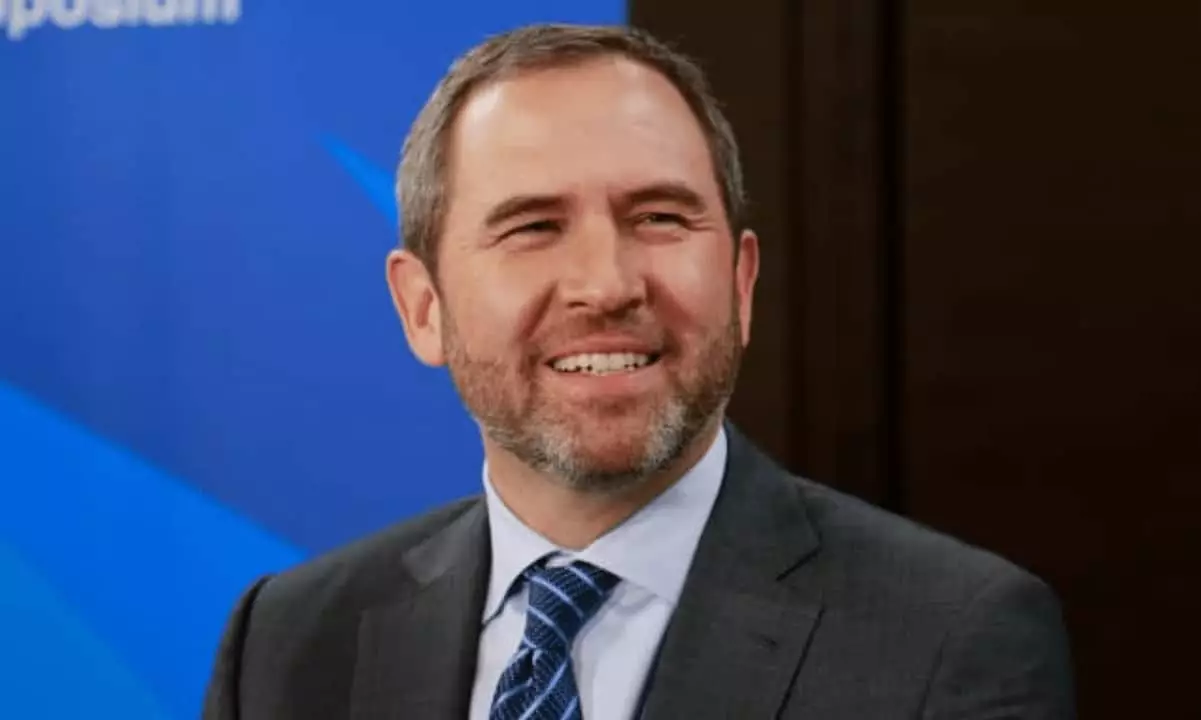The landscape of cryptocurrency regulation in the United States is on the verge of transformation, as illuminated by Ripple’s chief executive, Brad Garlinghouse. In a recent interview with Bloomberg, Garlinghouse expressed his optimism surrounding a potential shift in regulatory attitudes, particularly as the current administration approaches its end. He emphasized that regardless of the outcome of the upcoming presidential election, a more favorable approach to the crypto industry is likely to emerge, suggesting that the Biden administration’s tight grip on crypto regulation is nearing its conclusion.
Garlinghouse’s remarks suggest a yearning within the industry for clarity and constructive engagement with regulatory bodies. His strong critique of SEC chair Gary Gensler highlights a prevalent concern among crypto advocates—an assertion that Gensler’s stringent oversight has stifled innovation and growth within the sector. This ‘reign of terror’ narrative exemplifies Garlinghouse’s belief that the current regulatory climate may hinder the United States’ competitiveness on the global stage as other countries formulate more progressive frameworks for cryptocurrency.
When discussing the viability of political candidates in relation to the crypto ecosystem, Garlinghouse maintained a neutral stance but acknowledged the contrasting attitudes between the two major parties. He noted that Republicans tend to advocate for clearer regulatory guidelines for the crypto industry, suggesting a potentially more supportive environment if a Republican candidate gains power. On the other hand, indications from the Harris campaign hint at an openness to re-evaluating the existing regulatory frameworks that are perceived as flawed.
The implications of these political preferences are significant, as they can lead to divergent paths for the digital asset landscape in the U.S. Clarifying the regulatory framework could pave the way for greater institutional adoption and innovation, benefiting not only XRP but the entire spectrum of cryptocurrencies.
Garlinghouse also highlighted the growing interest in a potential spot XRP exchange-traded fund (ETF), asserting that its eventual approval is “inevitable.” This anticipation could create upward pressure on XRP’s market price, providing a much-needed boost after fluctuations have kept the asset’s value relatively flat. The dynamics of the market, coupled with a supportive regulatory environment, present a compelling scenario for investors and stakeholders in the crypto space.
However, the recent challenges faced by Garlinghouse himself, including being ‘de-banked’ by Citigroup, serve as a stark reminder of the current resistance within traditional banking systems against cryptocurrency engagement. Citigroup’s decision to cut ties, citing increased regulatory pressures, demonstrates the ongoing struggle between innovation in the crypto sector and entrenched banking practices.
As the U.S. navigates its approach to cryptocurrency, the insights from notable leaders like Garlinghouse are crucial. The conversation surrounding regulatory clarity, combined with the repercussions of the upcoming elections, could define the future of digital assets in America. Investors, company executives, and politicians alike must pay attention to these evolving discussions to ensure that the U.S. does not lag behind in the global crypto race. Though the road ahead poses challenges, there is palpable hope for a more balanced approach that fosters both security and innovation in the cryptocurrency industry.















